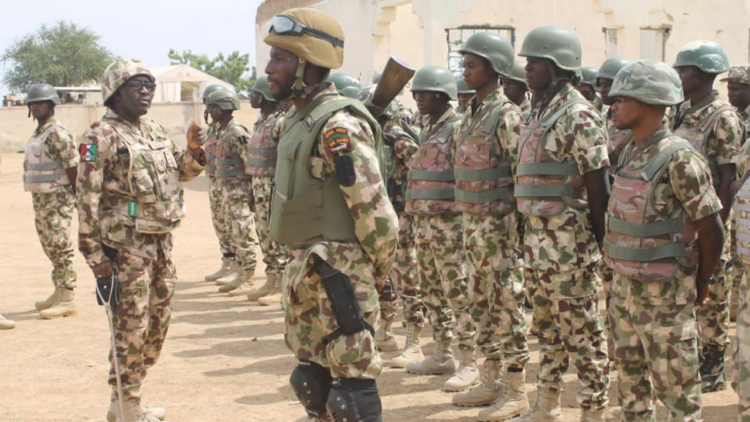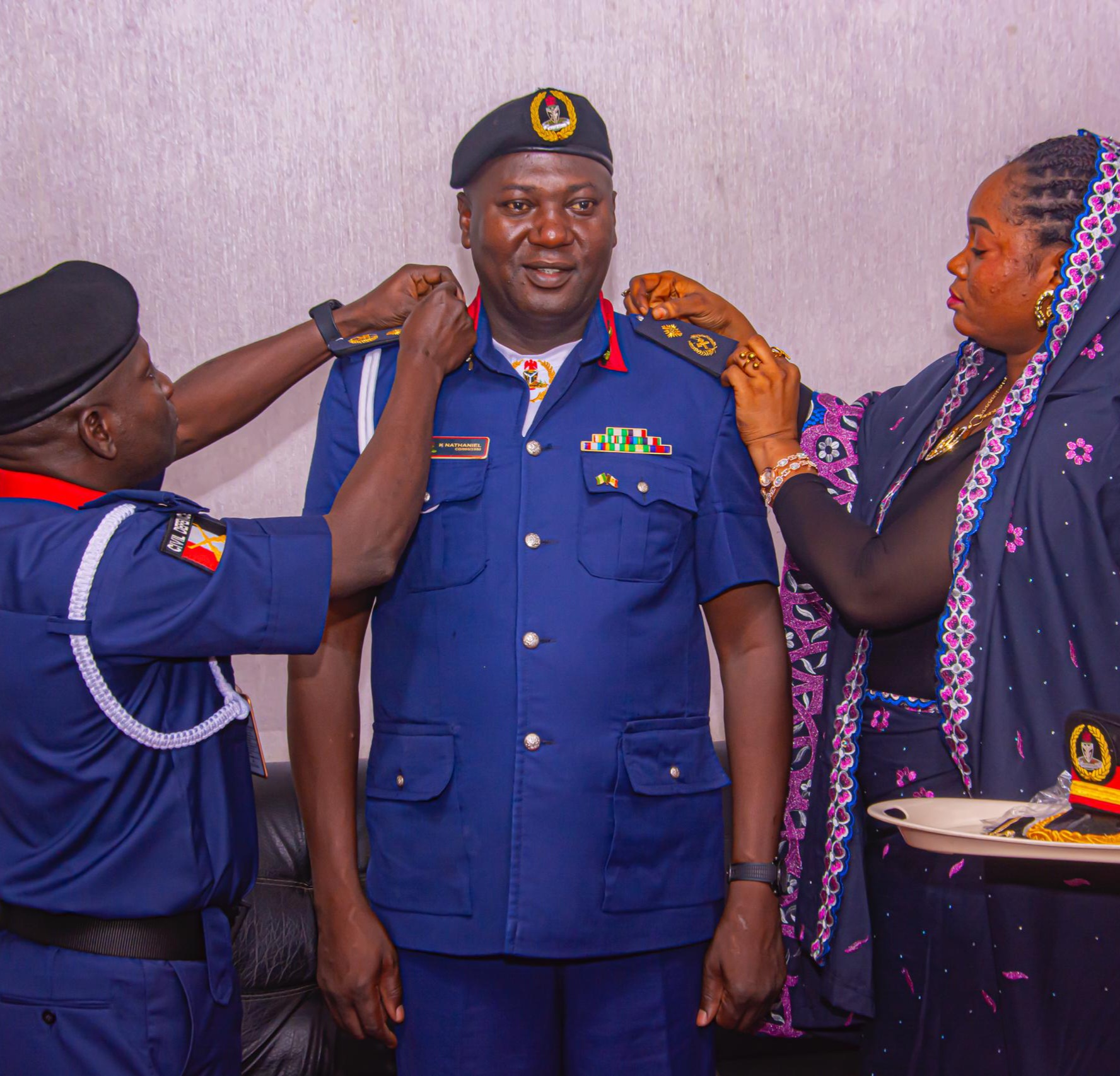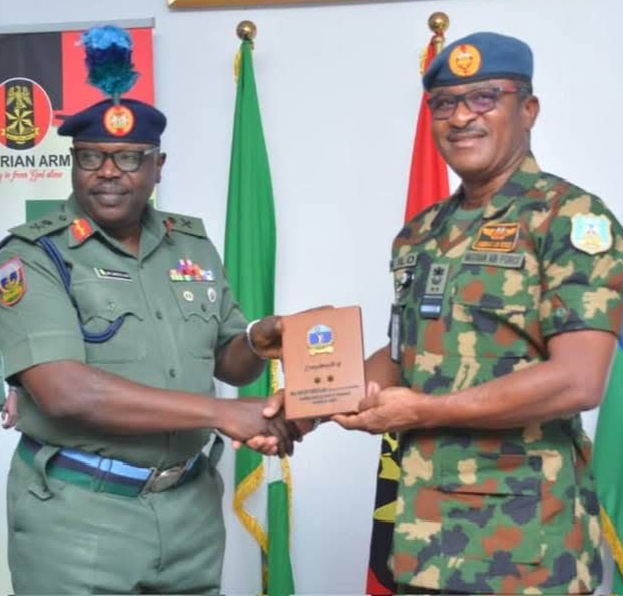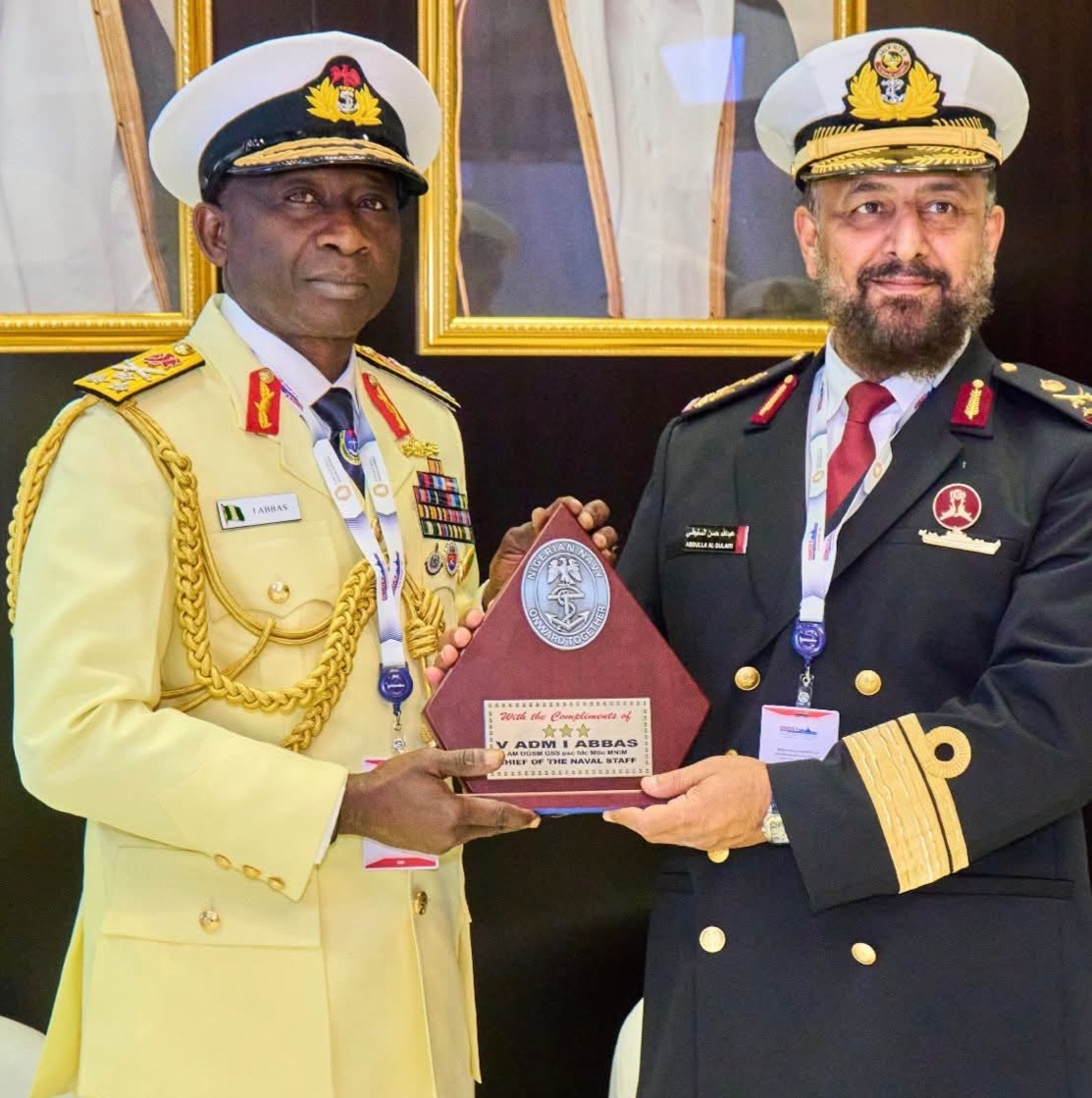
As Nigeria faces mounting security challenges from multiple fronts, including terrorism, banditry, kidnapping, and communal clashes, the soldiers defending the country are feeling increasingly demoralised and frustrated due to poor remuneration.
According to military sources, most soldiers are enduring very low salaries and poor welfare conditions despite the high risks and demands of their job.
Civil Society Organisations (CSOs) have deplored the poor salaries paid to the personnel of the Nigerian armed forces, especially the rank and file, and called for an immediate increment.
Concerns have been raised, within and outside the Armed Forces, that in the face of the rising cost of living in the country, a larger number of the troops, who are lower-ranking personnel, are collecting between N52,000 and N57,000.
Currently, the monthly salary of a low-level Nigerian soldier ranges from N52,000 to N57,000, depending on the rank and length of service.
These salaries cut across the Army, Navy, and Air Force. In the present economic situation in the country, such salaries fall far short of their basic daily needs; even worse is that these are soldiers who sacrifice their lives to defend the country from all manner of aggression, both within and without.
At present, soldiers are deployed in every state in Nigeria battling terrorists, bandits, kidnappers, separatists and containing communal violence.
While many applaud the efforts of the Nigerian troops in containing the security challenges facing the nation, others are calling for increased budgeting for the armed forces so that the welfare of the personnel is well taken care of, especially the rank and file.
Again, the operational allowances that soldiers receive, which are meant to cover their food, transportation and other expenses while on duty, are not only paltry, but are often delayed or irregular, causing additional stress and hardship.
The CSOs lament that many soldiers often resort to borrowing, begging, or engaging in petty trading to complement their meagre income, undermining their focus and discipline and exposing them to partaking in exploitation and corruption, just to make ends meet.
The CSOs who spoke to LEADERSHIP are the Transition Monitoring Group (TMG), Transparency International (TI), and the Civil Society Legislative Advocacy Centre (CISLAC).
Speaking through their leader, Awwal Musa Rafsanjani, the CSOs said more funding should be channelled to the Nigerian armed forces through increased budgeting and incentives.
Rafsanjani expressed disappointment with the political class’ failure to prioritise the security and welfare of Nigerian workers and security personnel.
“We call on the federal government to increase the salaries and allowances of soldiers to a level that reflects their sacrifices and contributions, ensure timely and transparent payment of salaries and allowances, and improve the living conditions and health care of soldiers and their families,” he said in an interview with LEADERSHIP.
He emphasised the need for proper allocation of resources and adequate reward for the sacrifices made by security personnel.
“We want this issue to be addressed. Our security men and women should be well taken care of because they are doing a lot for the safety of the citizens and the protection of the country’s territorial boundaries,” Rafsanjani said.
“I think it is one of the most unfortunate things in Nigeria. The security personnel and Nigerian workers have been relegated by the political class. Reasonable resources are not channelled to where they should be channelled. The security agencies, university teachers and Nigerian workers should be considered.
“Every now and then, our security people are killed in the course of their sacrifices to the country. There should be a good reward,” Rafsanjani said, pointing out that nowhere in the world are security men relegated to the background in terms of remuneration.
“We want this issue to be addressed. Our security men and women should be well taken care of because they are doing a lot for the safety of the citizens and the protection of the country’s territorial boundaries,” Rafsanjani added.
While the CSOs said that the payment of the rank and file in the armed forces ranging from N52,000 and N57,000 is grossly inadequate, the National Assembly has disclosed that it will promptly address the issue by providing more funding to the armed forces if the issue is brought to it.
Senate spokesman, Yemi Adaramodu, said the issue had not been brought to its notice, but gave assurance that the Senate would intervene if such matters were presented to it.
“This has not been brought to the attention of the National Assembly,” Adaramodu said of the salaries paid to the lower rank of the armed forces.
“However, if there is any complaint or a public petition on this, it will be diligently handled by the relevant Senate Committee or as may be deemed appropriate by the Senate leadership,” Adaramodu added.
Meanwhile, the secretary general, International Institute of Professional Security (IIPS), Dr. Abdullahi Mohammed Jabi, said soldiers deserve at least half a million naira in monthly salary.
He said it was unacceptable that a paltry amount was being paid to soldiers who put their lives on the line in defence of the nation.
“It is justifiable for an increase to be made geometrically in order to motivate them. They can’t be losing their lives on the battlefield and then be contending with this irresponsible, poor payment. There is nothing wrong if they can equally be given special payment besides the minimum wage being demanded by labour now.
“They have to be given something reasonable because it has to do with life; you see them today and tomorrow they are gone. What will their families fall back on? So they should be given what is reasonable, let’s say, half a million per month so that they will be able to do the job very well, because part of the challenge we experience with the unending insurgency is that some of our soldiers are now compromised due to their condition.”
When contacted, Brig-Gen Tukur Gusau, the acting director, Defence Information, said the federal government was already working towards an upward review of soldiers’ salaries.
leadership






